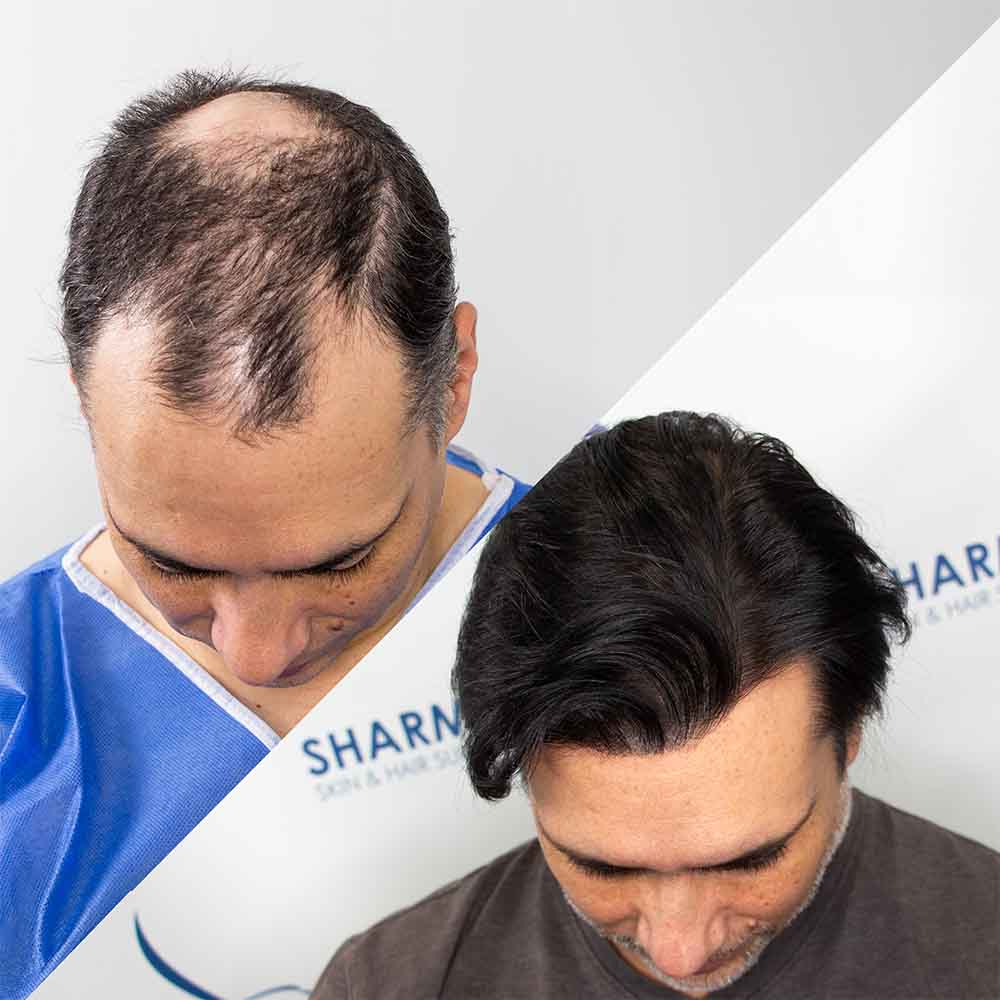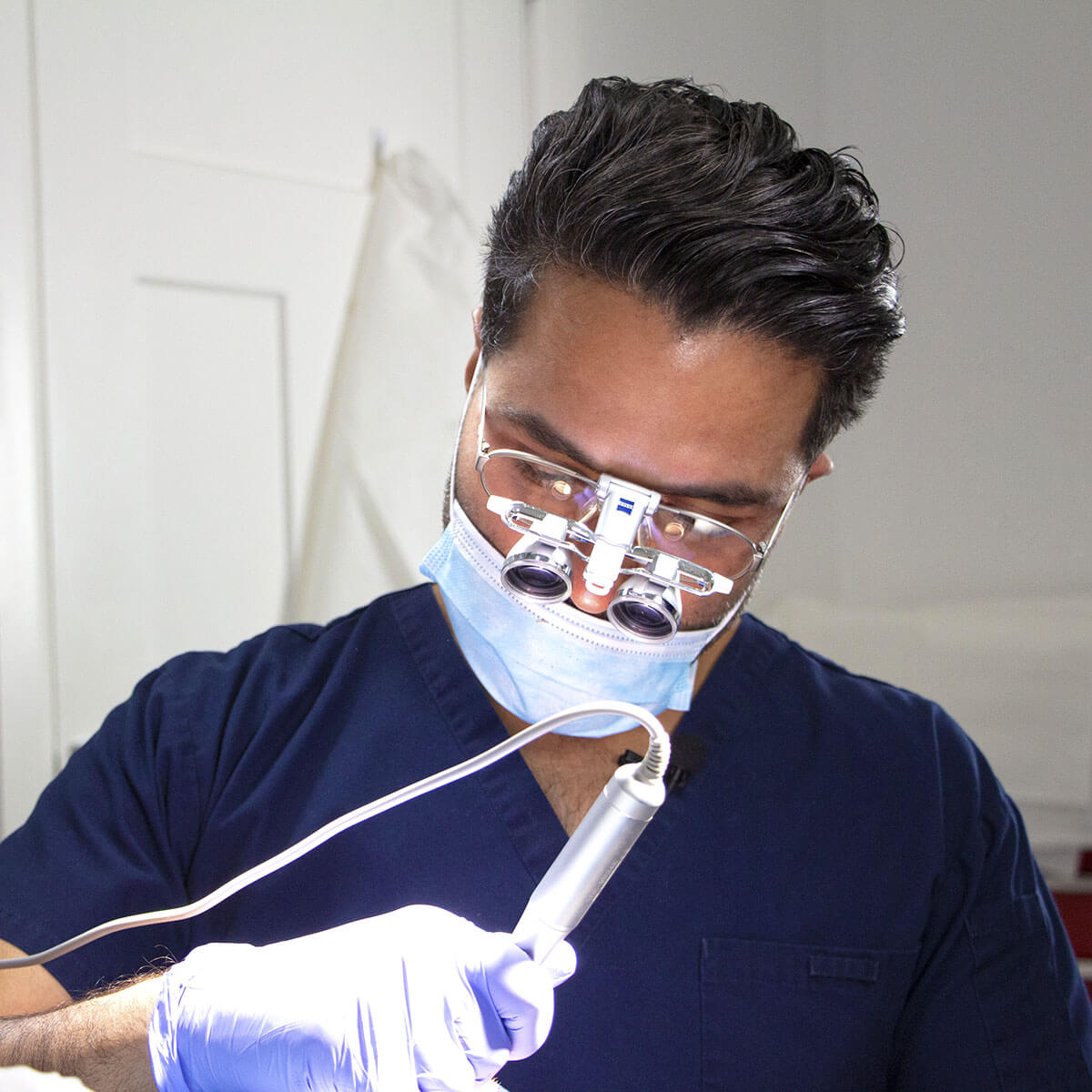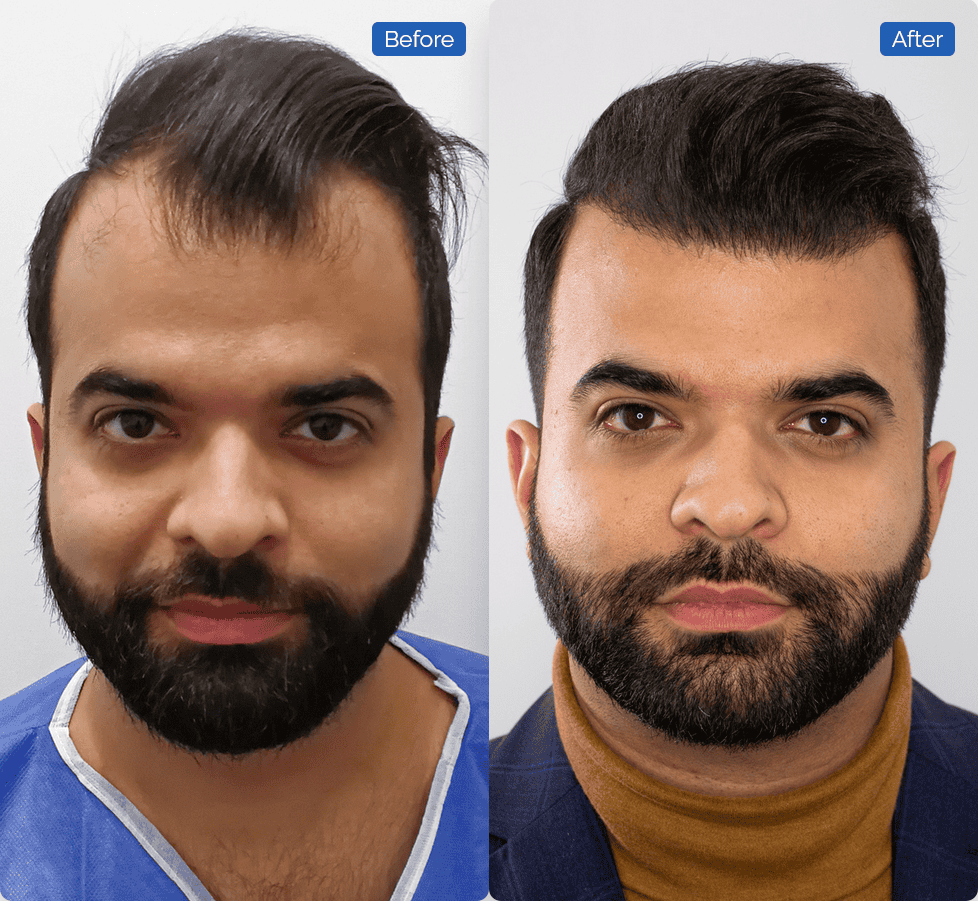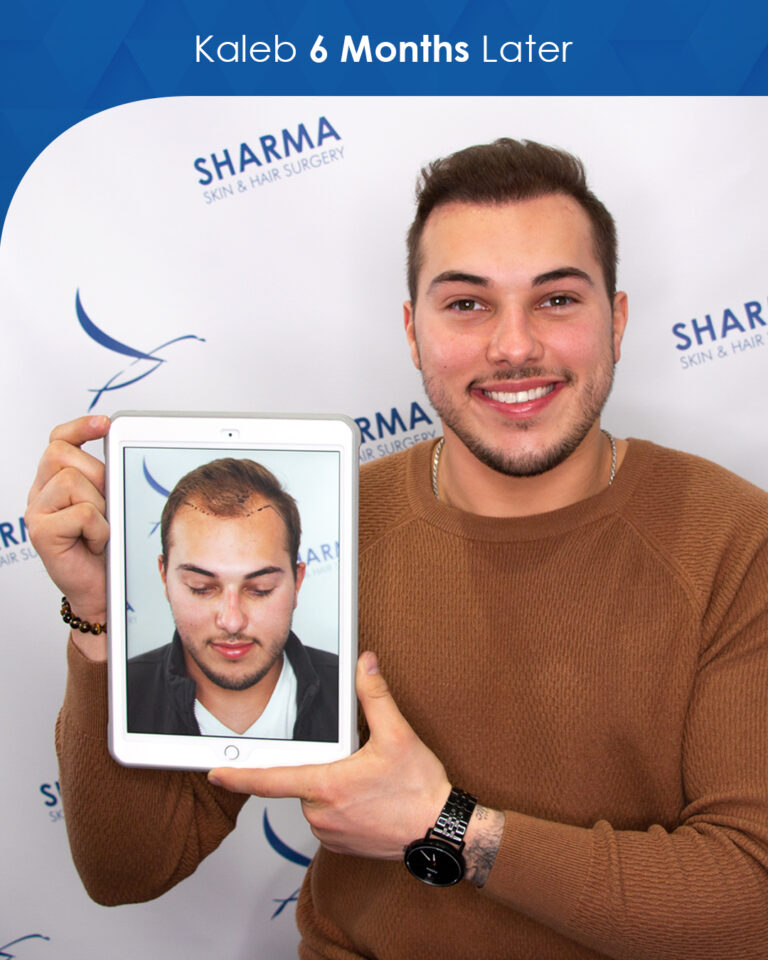Get your confidence back
Reverse a receding hairline
A hairline transplant, also known as hairline restoration surgery, is a procedure aimed at addressing receding hairlines or restoring a more youthful appearance to the frontal hairline. It involves moving hair follicles from areas where hair is thicker (often the back or sides of the scalp) to the areas where hair has thinned or receded.
Hair loss affects many people, but with our expertise, it’s possible to reverse the signs of aging and restore a youthful appearance. Dr. Sharma is renowned for his meticulous approach and artistic vision, backed by over 10 years of specialized experience in creating natural-looking hairlines. His methods are crafted to deliver results so seamlessly, that it’s as if you never underwent a procedure at all.
Check out some before & after photos
OUR CLINIC
What to expect
We’re committed to finding the right solution that fits your specific needs and ensuring you’re well-informed about the options available for your hairline transplant surgery. Here’s what you can expect every step of the way:

Consultation
Your journey begins with a thorough consultation, where Dr. Sharma will assess your suitability for a hairline transplant. He’ll personalize the approach to meet your unique needs and preferences. During this session, we’ll cover all the details of the procedure, including healing times, additional treatments, and medication options.
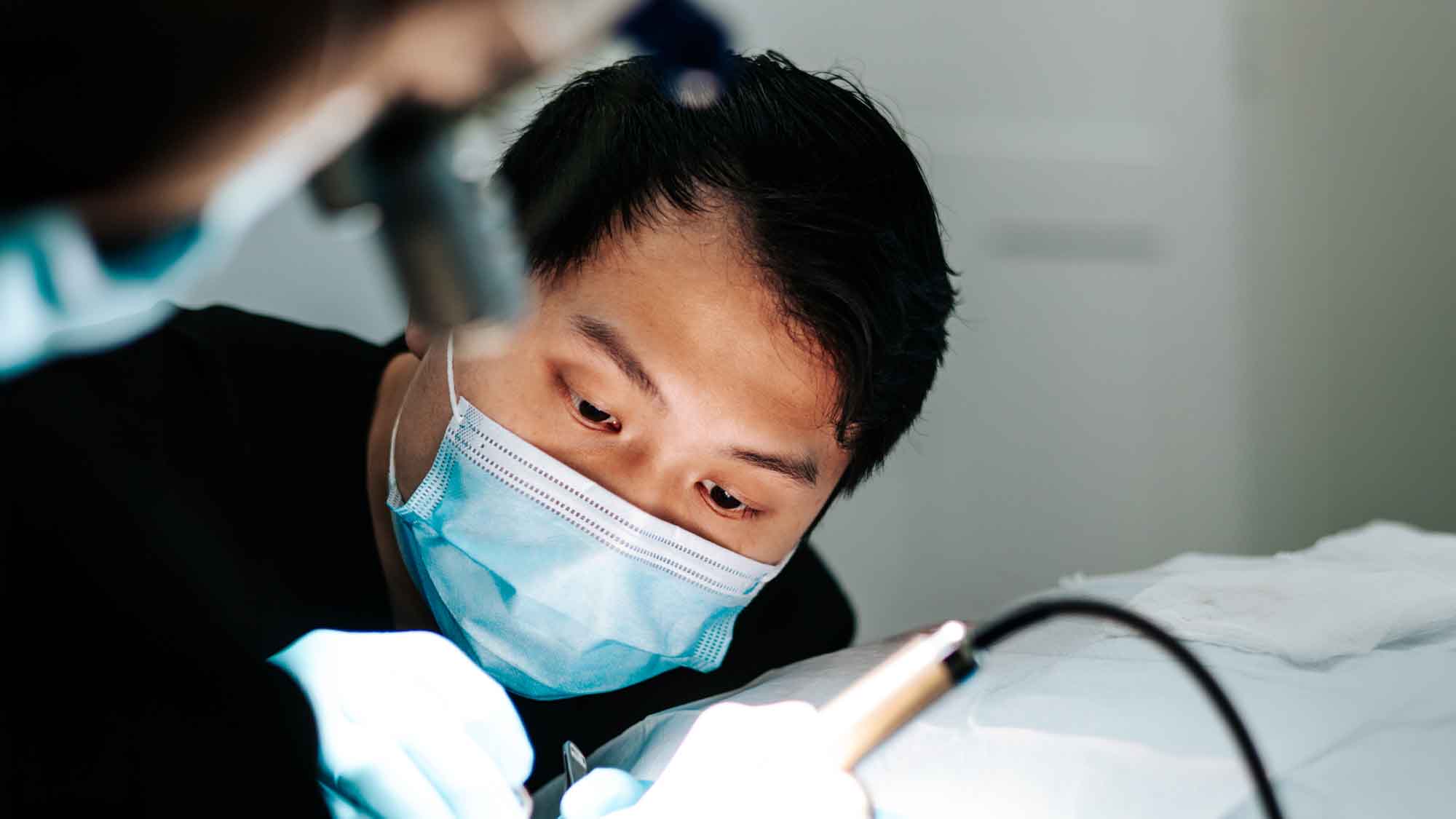
Surgery day
While we discuss the specifics of your surgery during your initial consultation, we believe it’s important for all our patients to have access to this information. We offer various methods to help ease any concerns you may have about the procedure or surgery in general.
Ready to regrow your confidence? Get in touch below to start your hair transplant journey.
Get more information
Knowledge Centre
Hair Transplant Alternatives

We understand that losing your hair can be a confidence killer. Many people feel self-conscious when they notice thinning or receding hair. While a hair…
Hair Transplant Graft Numbers: Why More Isn’t Always Better
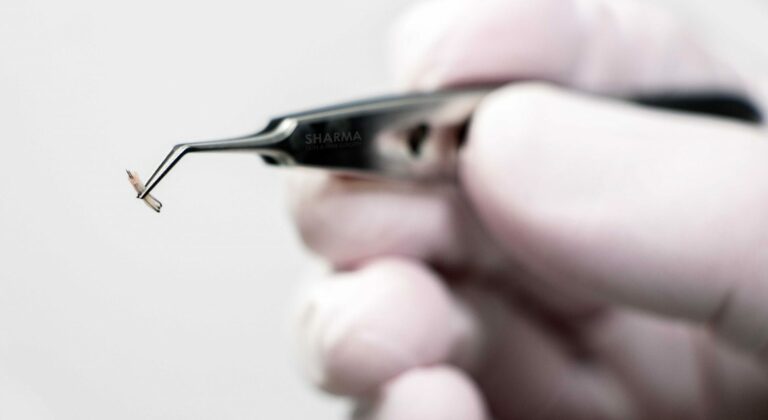
Hair transplantation has become an increasingly popular solution for those seeking to restore their hair. However, the industry has seen a disturbing trend: a focus…
Read article on Hair Transplant Graft Numbers: Why More Isn’t Always Better
DHI Hair Transplants: Separating Fact From Fiction
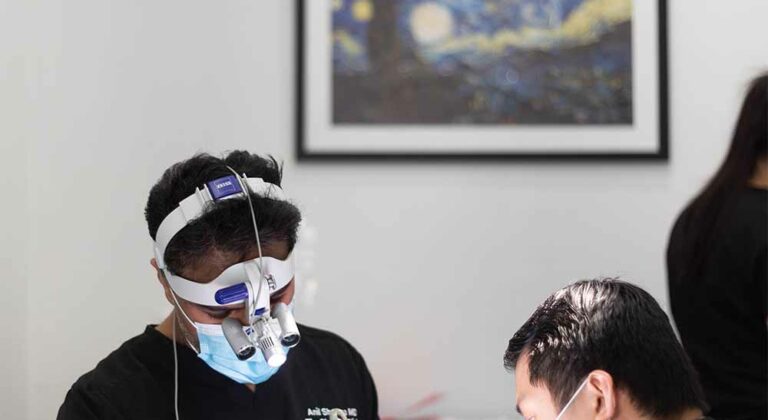
The hair restoration landscape is constantly evolving, with new techniques and technologies emerging regularly. One term that has gained significant popularity in recent years is…
Read article on DHI Hair Transplants: Separating Fact From Fiction
HAIRLINE TRANSPLANT FAQS
We’ve compiled a list of some of the most common questions asked during our initial consultation.
It’s common for patients to find transplanted hair sheds after a few weeks. But here’s the good news: this is temporary. Hair growth follows natural cycles, and the transplanted follicles will start producing new hair aftera few months. Think of it as a restart button – they’ll go through the anagen (growth), catagen (transition), and telogen (resting) phases just like your existing hair, but ultimately lead to permanent growth in the recipient area.
The recovery timeline for hairline transplants depends on the specific procedure and the area being treated.
Following an FUE procedure, the donor site at the back of your head typically regains normal hair growth within a relatively short time frame of 2-4 weeks.
For the recipient area, where the hair follicles are transplanted, it takes longer to see new growth. You can expect noticeable hair growth to begin around 3-6 months after the procedure, with around 70% of the transplanted hair visible by the one-year mark.
The full maturity of your transplanted hair grafts takes about 18 months, at which point you’ll see the final cosmetic results.
While the transplanted hair follicles themselves are permanent, meaning they won’t succumb to the same balding process, your overall hair loss pattern might continue. That’s why we create a personalized transplant plan based on your specific baldness pattern. To minimize future hair loss, we might recommend certain products and medications, or even consider a future transplant treatment if needed. This ensures you get the best possible long-term results.
For your comfort, a local anesthetic block is used during the procedure. This ensures minimal discomfort, and many patients even choose to watch a movie while the procedure takes place.
Afterwards, you’ll likely only need simple pain medication to manage any remaining soreness. Dr. Sharma prioritizes your well-being, providing a personal follow-up consultation the day after surgery.
You’ll also receive detailed aftercare instructions and 24/7 access to the clinic’s phone number for the first three days post-surgery, ensuring you have all the support you need for a smooth recovery.
The cost of a hairline transplant varies depending on the procedure type and the number of grafts required, but procedures typically start at around $8,000.
GET IN TOUCH
Talk to a hairline transplant expert
Contact us for a free virtual hair loss consultation and get started on your transformation today.



